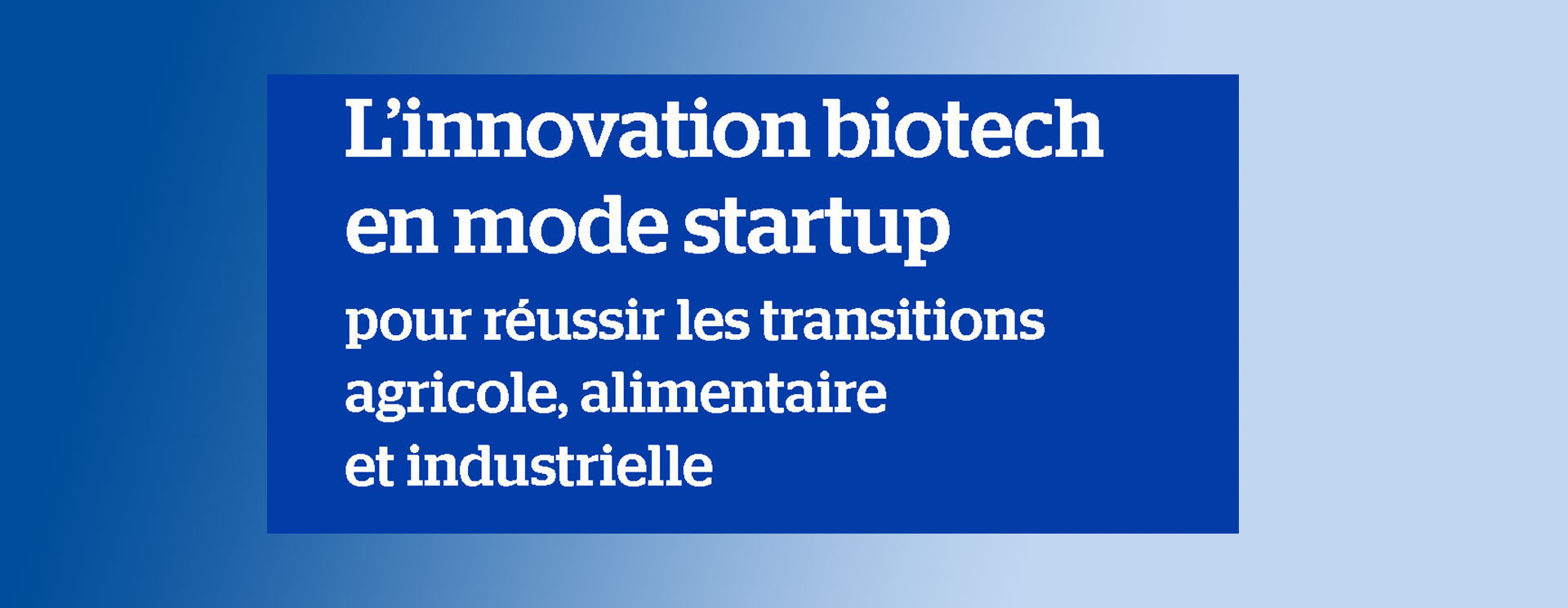Notes
Temps de lecture : 5 min
27/03/2020
Biotech innovation in a startup mode for successful farming, food and industrial transitions

English Version for Summary and Recommendations only.
Résumé
Start-ups are innovative stakeholders in AgTech and Food Tech in France, Europe, and globally. They grow in the fertile grounds of favourable ecosystems. Digital technologies, robotics, information technologies and biotechnology prevail in AgTech and Food Tech. Innovative start-ups harness biotechnology to address current grand challenges: transitioning to a more inspired by nature agriculture, to healthy nutrition and wellness food, and towards an increasingly biobased and circular economy. Biotechnology allows the development of new varieties that are more resistant to stress and of biobased solutions for farmers (biocontrol, biostimulants, biofertilizers); diversifies agricultural crops and develops new biomass resources; and builds an environment-friendly bioeconomy by recovering waste into food, cosmetic or energy by-products, or in green chemistry. All these fields of application are already a reality, but with the climate emergency we need innovation more than ever to secure successful transitions. Thus, it is essential to lift certain obstacles, above all regulatory, financial and psychological for farmers, innovative project leaders and consumer-citizens. First, establishing a regulatory framework that allows companies to develop crop varieties adapted to climatic and sanitary stresses using modern breeding techniques is needed, as well as adapting the “Novel Foods” regulation so that innovative companies share the costs of compliance. Second, innovation funding must be more accessible to project leaders and should help start-ups to scale up. Finally, psychological barriers must be lifted for farmers to help them take the risk to use new biobased inputs and enter in innovative value chains; entrepreneurship must be encouraged for public research scientists and students; and consumer-citizens’ fears need to be addressed by clear public policies selecting innovation projects that respond to shared societal, economic and environmental challenges.
Nos propositions
RECOMMENDATIONS:
1. Encouraging and supporting project leaders to innovate in promising sectors
Facilitating entrepreneurship by public sector researchers and students entrepreneurial projects as soon as they graduate and improving the access of start-ups to financing tools to scale up.
2. Adapting and clarifying the regulatory environment
Reducing the cost of compliance of the with the European Novel Food regulation and designing a sustainable regulatory framework for recent plant breeding techniques facilitating innovation transfer in the seed sector, in order to meet the environmental, societal and economic imperatives of the agricultural transition.
3. Convincing policy-makers and citizens that agriculture needs innovation
By clearly articulating public policies in this area to facilitate innovation transfer for projects that meet shared societal, environmental and economic needs.
4. Supporting farm managers
To help them take the risk of changing their production methods and adopt bio-based products including bio-stimulants, bio-fertilizers, biocontrol solutions and selected varieties adapted to their needs. No agricultural innovation is successful without going to the field and involving farmers in development and field experiment must be encouraged. Farmers must be recognised as key stakeholders in innovation transfer.




